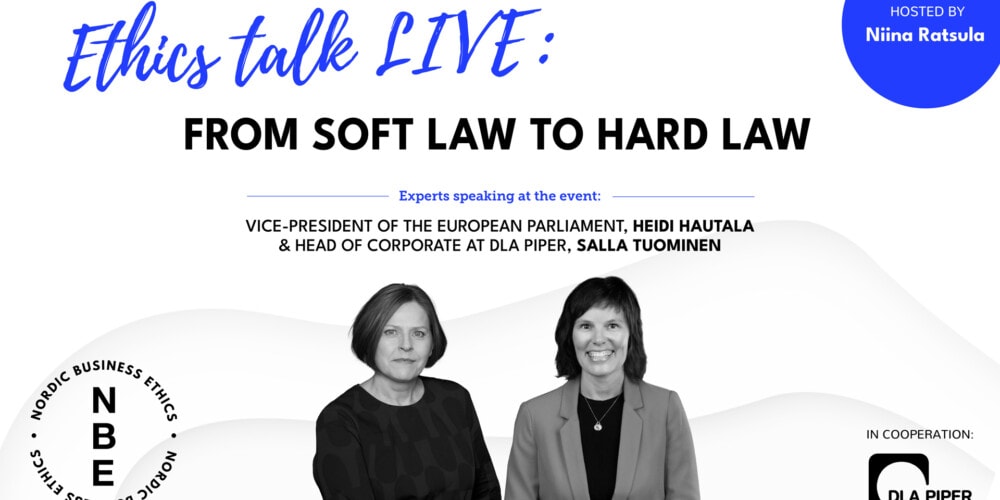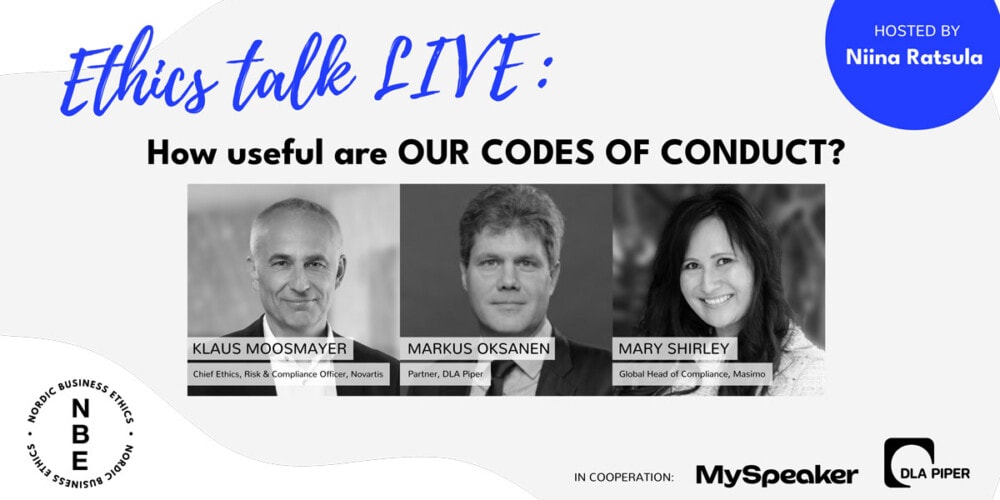EthicsTalk LIVE: Corruption and human rights in sports – a corporate perspective
The Qatar World Cup received huge media coverage and was discussed also by non-football fans all around the world. Everyone seemed to have an opinion on this matter, but as always with our EthicsTalk LIVE topics, there is much more grey area than clear-cut black and white.
Alison Taylor, Nicholas Fitzpatrick and André Noël Chaker took part in our EthicsTalk LIVE: sports and corruption episode. This blogpost highlight the main points of the conversation. More details about the experts on our event page.
Can sports be isolated from politics?
André pointed out, that in the past Olympics was the moment when politics and wars temporarily seized. Sports was above politics and the same ideology can be seen in the aspiration of the “Sport as an enabler of sustainable development” resolution (A/77L.28) by the United Nations General Assembly. It recognises that “major international sports events should be organised in the spirit of peace, mutual understanding and international cooperation, friendship and tolerance, and without discrimination of any kind, and that the unifying and conciliative nature of such events should be respected”.
The resolution is noble, but in Nick’s opinion athletes are representatives of their political administrations and quite concretely they often wear their flags. These athletes should not attend international events, as long as their countries are involved in hostile activities. South African Apartheid is an example of a situation where politics rightfully meddled with sports. Alison, André and Nick agreed, that the decision on athletes competing without being under a flag is a much more nuanced conversation.
Sports = business
Sports is business, there is no question about it. One part of it, is creating huge commercial events that have all the same implications than other large events such as concerts. Sports is bound by all the same ethical aspects one should expect when operating in an international business context. However, sports is more than that. It is frequently a recipient of public funding, subject to government quarantees (venues), and governments underwrite liabilities.
“There are every grounds to say that the standards appropriate to business are a starting point, but only a starting point. It is crucial that sports can maintain its credibility and its special status.”
Nicholas Fitzpatrick, DLA Piper
“It must pay extremely close attention to how it handles itself in the conduct (the standards and governance), but also how it approaches the world.” Nick continues.
When discussing whether masses should attend events where the circumstances are questionable, Nick reminds us, that it is possible to assist these regions through big events. For example, improvements in the kafala system were achieved due to the World Cup. Also, the government of Qatar is repurposing the temporary accommodations built for the World Cup to the earth quake zone in Syria. Even though these examples are on the positive side, they should not be taken as excuses.
Nick very deservingly points out that we should also pay attention to the double standards, that are currently in play. Easier profit generation guides big events more frequently to take place outside Europe. Due to not only cultural differences, but also differences in IPR and tax legislation and governmental guarantees compared to many Western European states.
In regard to human rights Alison reminds us that we started from an idea, that when we direct foreign investments into countries with autotarian governments, they will become more democratic and the markets will open up. Truthfully, that seems even more problematic than before. The increasing human rights regulation may actually lead to divestments when companies are protecting human rights in their operations. She states that “there are many actions companies and sports organisations can take to protect human rights in their own operations that have the effect of worsening human rights globally over all“.
Making good on the promises already made
Thousands of people travelling across the globe and accommodating themselves to build and attend an event, is inherently unsustainable. There are ways to mitigate the harm, but it is unrealistic to think that we can move this many people and things without damage to our planet. In reality, carbon neutral events mean that the events are built as sustainably as possible by using renewables and using carbon offsetting.
Nick reminds that in the future, focus should be placed on the procedures how the venues are selected. The process has to be robust enough for all rightsholders. Additionally, every part of design, build and execution needs to be critically looked at to minimize harm. Nick also sees monitoring as the key factor in the future. All in all, the nature of international events has to evolve. Many artists already do their touring differently in order to cause less negative impact on the world. They decide their tours based on their political and ethical viewpoints and try to minimize carbon footprint. Sports events have to follow – and make good on the promises they are already making.
If you want more of the same topic, make sure you watch the webinar recording from Nordic Business Ethics’ YouTube channel.



